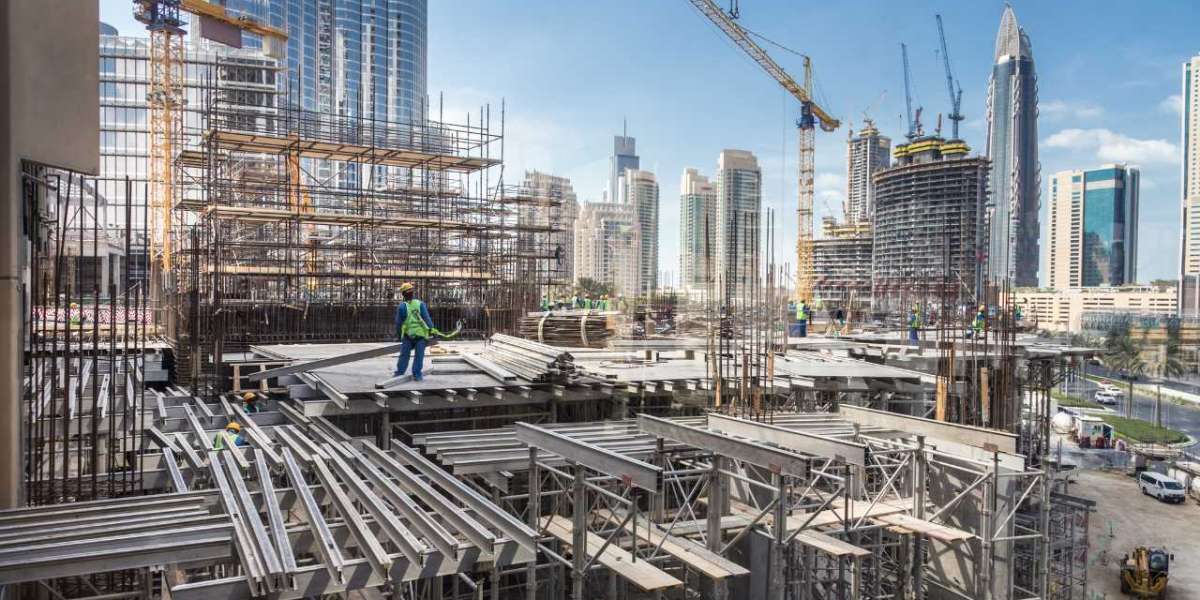Construction is a complex and intricate process that involves numerous stages and tasks. Every aspect is crucial in bringing a project to life, from design to completion. One such critical stage in construction is site work, which often sets the foundation for the entire project.
Sitework involves all the preliminary activities required before construction begins, such as site preparation, excavation, grading, and utility installation. But what exactly does sitework entail?
I will delve deeper into understanding site work in construction, its purpose, the components involved, and its importance in a project's overall success. Whether you are new to the industry or looking to refresh your knowledge on this essential process, keep reading to learn everything you need about site work.
Understanding the Concept of Sitework in Construction
Sitework plays a crucial role in laying the foundation for successful building projects. Sitework encompasses all the activities and preparations necessary to prepare a construction site for the actual building process. This includes excavation, grading, utility installation, and landscaping.
One essential aspect of site work is the Sitework Takeoff process. It involves the detailed estimation and quantification of materials, labor, and equipment needed for the sitework phase of a construction project. This meticulous analysis allows project managers to accurately plan and budget for the various aspects of site work, ensuring that resources are allocated efficiently and effectively.
Through Sitework Takeoff, professionals can make lists of materials, calculate costs, and set timelines for site work. This systematic approach helps streamline construction, minimize errors, and optimize resource utilization. Ultimately, a well-executed Sitework Takeoff sets the stage for a smooth and successful construction project from the ground up.
Importance of Sitework in Construction Projects
Sitework is vital in construction projects as it lays the groundwork for the entire building process. Proper site work is essential for several key reasons:
Foundation for Success:
Sitework sets the stage for the construction project by preparing the site for building activities. It ensures that the ground is stable, graded correctly, and ready to support the structure that will be erected.
Infrastructure Installation:
Sitework involves installing crucial infrastructure elements such as utilities (water, sewer, electricity), drainage systems, and access roads. These components are vital for the building's functionality and longevity.
Compliance and Regulations:
Sitework ensures the construction site complies with local regulations, zoning laws, and environmental requirements. Proper site work helps prevent legal issues and delays during the construction process.
Safety and Accessibility:
Well-executed site work creates a safe and accessible environment for construction workers and equipment. It minimizes hazards, promotes efficient workflow, and enhances overall on-site safety.
Cost Efficiency:
Construction teams can effectively manage costs and avoid budget overruns by accurately estimating materials, labor, and equipment through processes like Sitework Takeoff. Proper site work planning contributes to cost efficiency throughout the project.
Timeline Management:
Sitework plays a critical role in project scheduling. Efficient site work ensures that subsequent construction phases can proceed smoothly according to the timeline, reducing delays and expediting project completion.
Aesthetic Appeal:
Landscaping and site preparation are part of the site work, contributing to the overall aesthetic appeal of the finished project. Attention to detail enhances the visual impact of the property.
In summary, the importance of site work in construction projects cannot be overstated. It forms the foundation for successful and sustainable structures, emphasizing meticulous planning, compliance with regulations, safety considerations, and cost-effective resource management.
Standard Practices for Sitework in Construction
Standard practices for site work in construction encompass a range of activities aimed at preparing the construction site for building operations. Some critical practices include:
Site Clearing:
This involves removing existing structures, vegetation, debris, or obstacles from the site to create a clean and workable area for construction activities.
Grading and Excavation:
Grading ensures the site is level and sloped adequately for drainage, while excavation involves digging and shaping the land to accommodate the building's foundation and utilities.
Utility Installation:
This practice includes laying down underground utilities such as water, sewer, electricity, gas, and telecommunications lines to provide essential services to the building.
Erosion Control:
Implementing erosion control measures such as silt fences, sediment traps, and erosion control blankets helps prevent soil erosion and sediment runoff during construction.
Earthwork:
Earthwork activities involve moving and compacting soil to the required specifications, which is crucial for creating a stable foundation for the building.
Site Access and Temporary Roads:
Establishing access points, temporary roads, and parking areas on the site facilitates the movement of construction vehicles, equipment, and personnel.
Stormwater Management:
Proper stormwater management practices, including installing retention ponds, swales, and storm drains, help control and direct rainwater runoff to prevent flooding and erosion.
Landscaping and Site Beautification:
Incorporating landscaping elements such as grass, trees, shrubs, and decorative features enhances the site's visual appeal and contributes to its overall aesthetics.
Surveying and Layout:
Conducting site surveys and layout activities to mark boundaries, elevations, and building positions accurately ensures precision in construction and adherence to design plans.
Safety Measures:
Implementing safety protocols, signage, barriers, and personal protective equipment to maintain a secure work environment for workers and mitigate potential hazards.
To read more articles visit Zzatem
Conclusion
Sitework is essential to any construction project and involves many tasks and processes. From site clearing and grading to utility installations and paving, site work lays the foundation for the success of a construction project. It requires careful planning, coordination, and execution to ensure the site is adequately prepared for the building process. With advancements in technology and machinery, site work has become more efficient and less time-consuming, ultimately leading to cost savings for construction companies. However, it also poses potential risks and challenges that professionals must carefully consider to avoid delays or accidents on-site. As we continue to grow in the construction industry globally, the demand for skilled sitework professionals will only increase. So next time you pass by a construction site with heavy equipment buzzing around, take a moment to appreciate all the work that goes into preparing that land before the building even begins.








